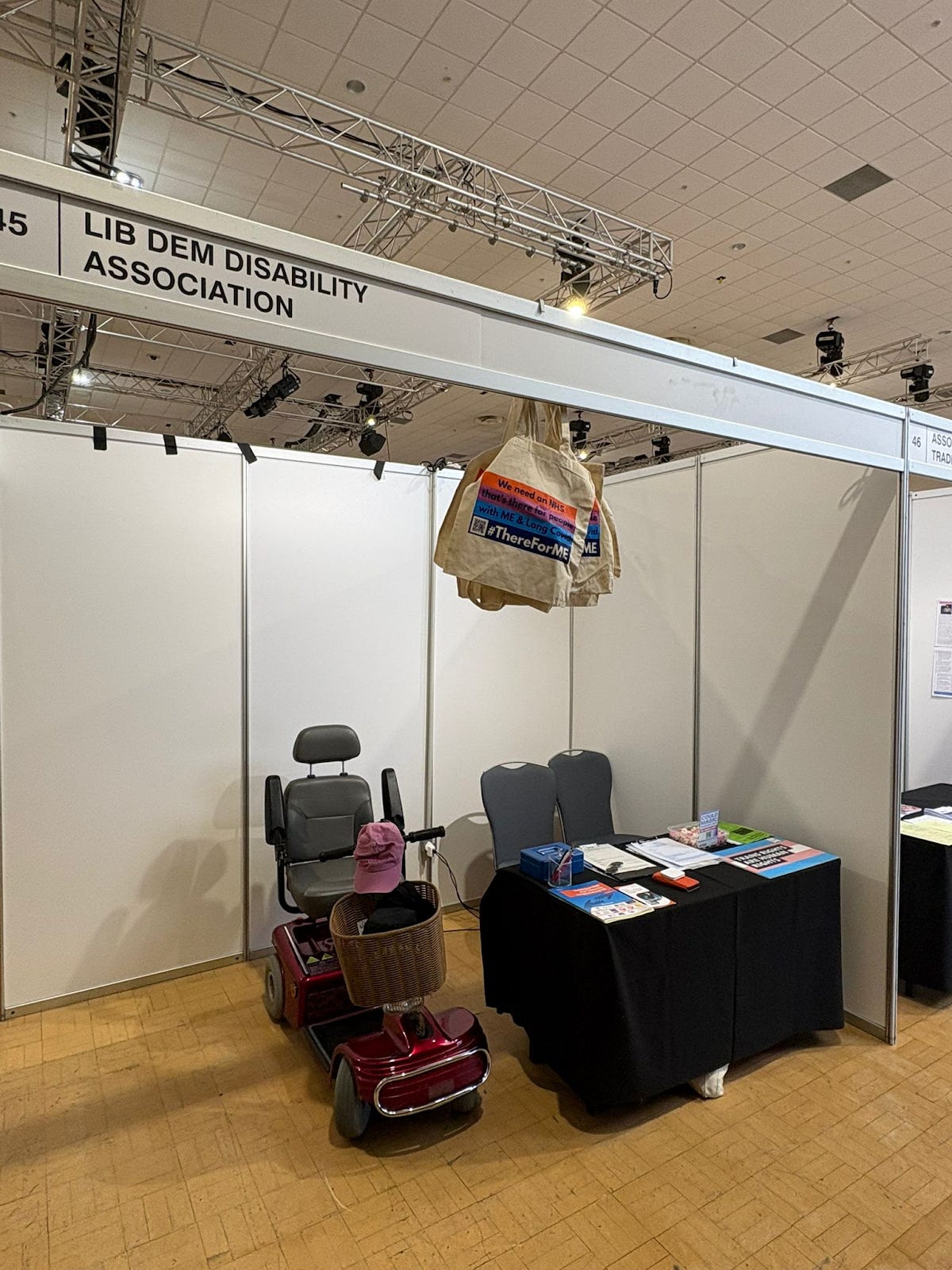Campaign Update #26: Advocacy at home and abroad
We’re hitting your inbox today from a moment of reflection. After the anti-climactic publication of the Delivery Plan in July, and as the next steps start to materialise, we’ve been taking some time to think about where our campaign goes next. Today we’re sharing an update from #ThereForME HQ along with the latest from Westminster and some of the advocacy activities overseas that are giving us inspiration.
#ThereForME updates
Back in #ThereForME HQ we’ve been focusing on getting our house in order and planning for what comes next. Our first priority is raising awareness in parliament about the challenges facing very severely affected patients and the need for appropriate NHS care provision.
While you may have noticed we’ve moved away from weekly updates on our Substack, we remain committed to keeping you informed with regular posts about the developments that matter most to our community. We’ve also got some great guest posts lined up that we look forward to sharing with you!
What’s happening in Westminster?
So what’s been going on in the world of Westminster? With the party conference season in full swing, the short answer is: not a whole lot. On 10th September, shortly before the recess for Conference season began, the All-Party Parliamentary Group on ME met to launch their inquiry into severe ME. Attendees heard directly from people with lived experience about the devastating impact of severe ME. Full minutes and presentations from the meeting are now available. The APPG will meet again on 23rd October to discuss next steps.
We were delighted that #ThereForME volunteer Jonah Weisz was able to bring some advocacy messages (and snazzy #ThereForME tote bags) to the Lib Dems’ party conference. Elsewhere, the Department of Health and Social Care (DHSC) has been moving ahead with parts of the Delivery Plan, including a new NHS service specification for mild and moderate ME, and the planned public awareness campaign. We’ve let DHSC know we are happy to support and hope to provide input as these plans progress.

Long Covid advocacy overseas
Recent data confirmed what many in our community already knew: Long Covid isn’t going away. Research tracking millions of people showed that incidence rates remain stubbornly high across multiple studies, with no decrease over time. In cohorts of 3.8 and 1.9 million adults selected using two distinct sets criteria, the story is consistent. he same pattern is demonstrated in children. It is clear this isn’t a problem that will solve itself. Enter advocates.
As we look to the future, we’ve been taking inspiration from some of the Long Covid advocacy making waves outside the UK. It’s been encouraging to see various policy discussions taking place and burgeoning interest from policymakers.
In the US, the Department of Health and Human Services (HHS) convened two roundtables on Long Covid in September, one centered on patient experiences, the other on research, bringing together clinicians, researchers, advocates and government officials. Health Secretary Robert F. Kennedy Jr. described the meetings as “the start of a sustained national effort,” noting that he hears daily from those affected and that the condition impacts his own family. Leaders from the FDA, NIH, and ARPA-H also pledged to elevate Long Covid as a priority, while Kennedy announced a new “Long Covid Consortium” to coordinate work across agencies.
HHS said it will launch a public awareness and education campaign aimed at patients, clinicians, and employers and develop an open-source medical resource platform to share clinical guidance and best practices. The Agency for Healthcare Research and Quality separately announced new grants to support multidisciplinary Long Covid clinics, with funding of up to $1 million annually for up to five years.
Both roundtables highlighted Long Covid as a serious public health challenge, with participants stressing the importance of listening to patient voices. Yet advocates noted what was absent: no major new federal research funding was announced, and little in the way of direct financial or practical support for people living with the disease. The consortium’s structure and funding remain unclear, raising questions about how it will differ from or complement existing initiatives.
Over in Brussels, Gez Medinger addressed the European Parliament at an event on Long Covid, emphasising that this is a problem affecting not just individuals but entire societies due to its scale. He highlighted how the issue remains invisible to decision-makers and pointed to research showing that people with Long Covid experience worse quality of life than those with advanced cancer.
Medinger discussed the challenges posed by the condition’s heterogeneous presentation, the need to stratify patient populations for treatment, and the risks of reinfection. His key message: we need the same political will that drove the acute COVID response then to address Long Covid now.
As the fight continues at home and abroad, we’ll keep pushing for the action our community deserves.
We’'ll see you next time.





Has anyone here heard about Simon Wessely being employed by Wes Streeting to look into “over-diagnosis of mental health” issues? Does anyone here suspect that this ever upward-failing abuser of patients is tasked (again) with creating false narratives, using faulty data to bolster the Government’s attempts to further vilify and abandon sick people?
"the need to stratify patient populations for treatment"
Decades of watching myalgic encephalomyelitis buried among various patients dealing with other conditions makes stratification an imperative for progress! One avenue is to use the ME International Consensus Criteria and IC Primer screening guidance. We need to know who fits that criteria. ME didn't magically disappear 5 years ago.